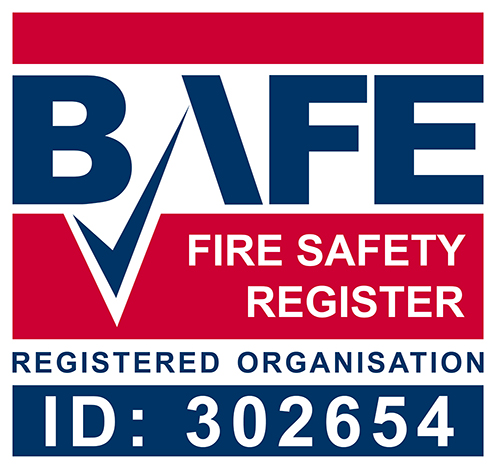At Clear Sound Fire and Security, the safety of your home or business is our top priority. One of the most common questions we get asked is, ‘How frequently should fire alarms be tested?’ It’s an essential topic, and in this blog post, we’ll provide clarity on the recommended frequency and best practices. Read on to ensure you learn more.
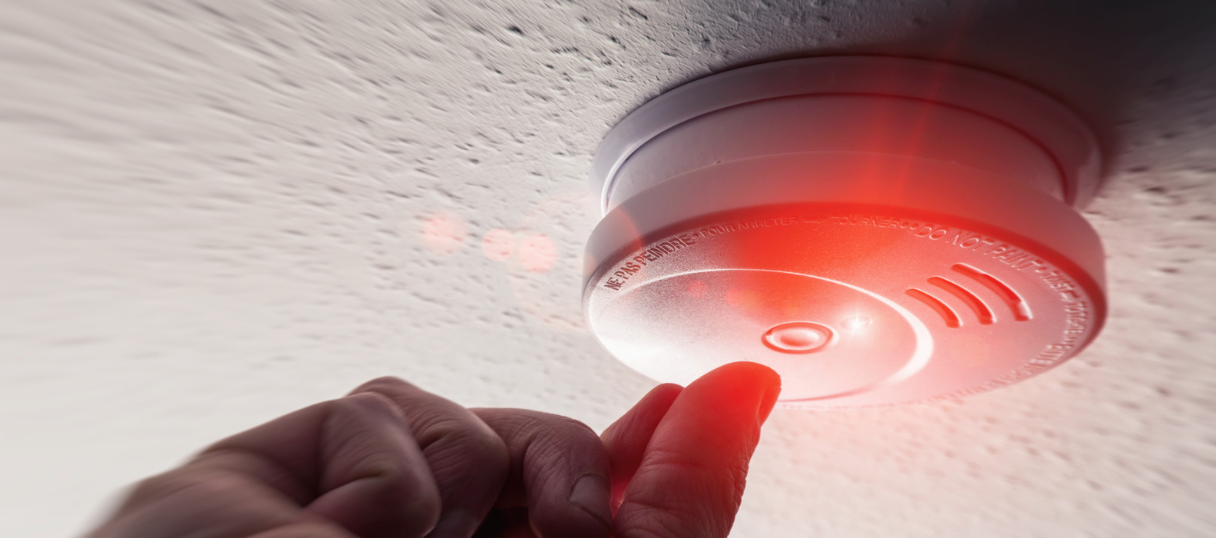
What is Involved in a Fire Alarm Test?
A fire alarm test ensures that each component of the system functions correctly. This means checking:
The alarm’s sound
Responsiveness of sensors (such as smoke and heat detectors)
Integrity of wiring
Backup power sources
Fire alarm control panel
Manual pull stations
Notification devices like strobes and bells
By performing these tests, you assure the building’s occupants’ safety and catch potential issues early, reducing the risk of system failures during emergencies.
How Often Should a Fire Alarm Be Tested on Commercial Premises?
In commercial spaces, the frequency and thoroughness of fire alarm testing are crucial. It’s recommended that basic fire alarm tests should be conducted weekly. This ensures primary functions are operational and the system can promptly detect and alert in case of fire; with varying activities and high footfall in commercial areas, these checks are essential to make sure your system stays fully operational. Whether you have an automatic fire alarm system or a manual fire alarm system, you should still conduct these tests weekly.
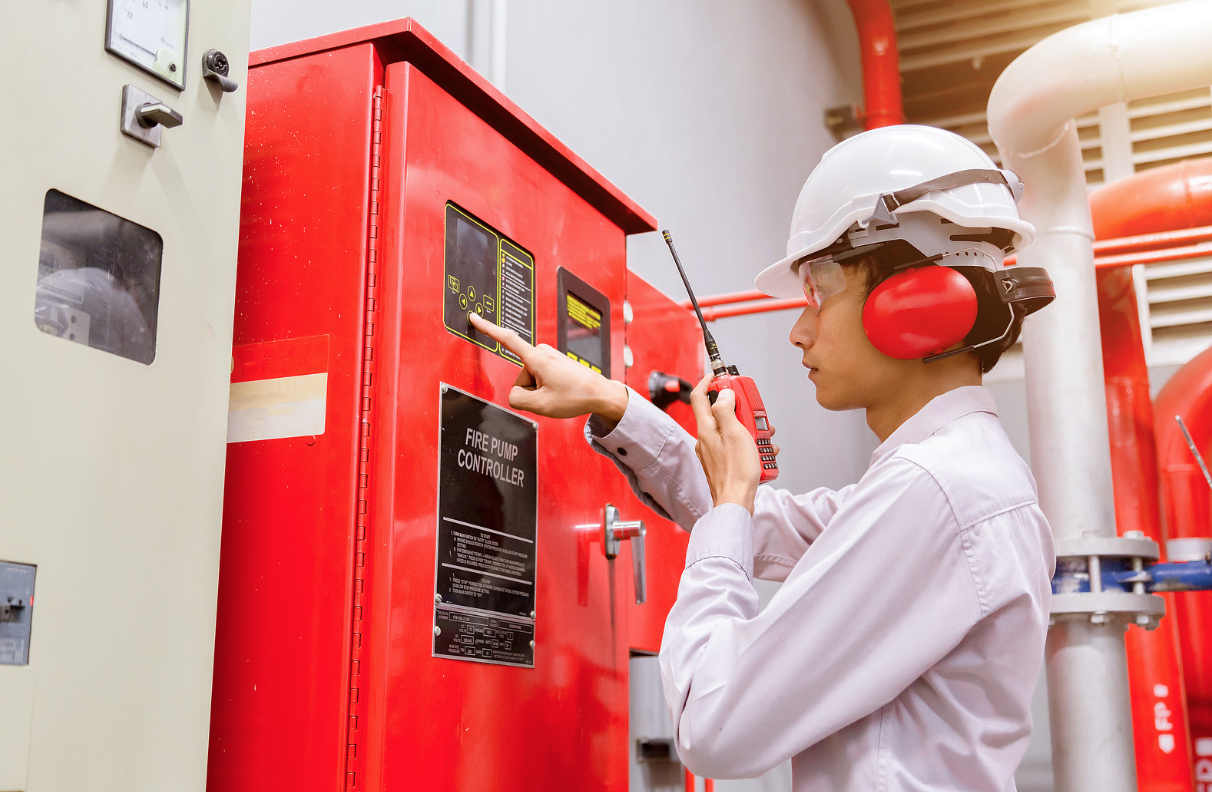
What are the Different Types of Fire Alarm Systems?
In the UK, fire alarm systems cater to diverse needs. The primary types include:
Conventional Fire Alarm Systems: Buildings are divided into zones. While the system indicates the fire zone, it doesn’t specify the exact fire location.
Addressable Fire Alarm System: These provide precise information about the fire’s location as each device has a unique address.
Analogue Addressable Fire Alarm Systems: These discern genuine fires from potential false alarms by offering a detailed environment analysis.
Wireless Fire Alarm Systems: Operating wirelessly, these are perfect for listed buildings or where minimal disruption is desired.
Two-Wire Fire Alarm Systems: Cost-effective solutions that simplify installation by combining detection and alarm signals on the same wiring.
To ensure safety and compliance, it’s essential to select the right system for your premises. Consultation with UK-based fire safety experts, like Clear Sound Security, can guide your choice.
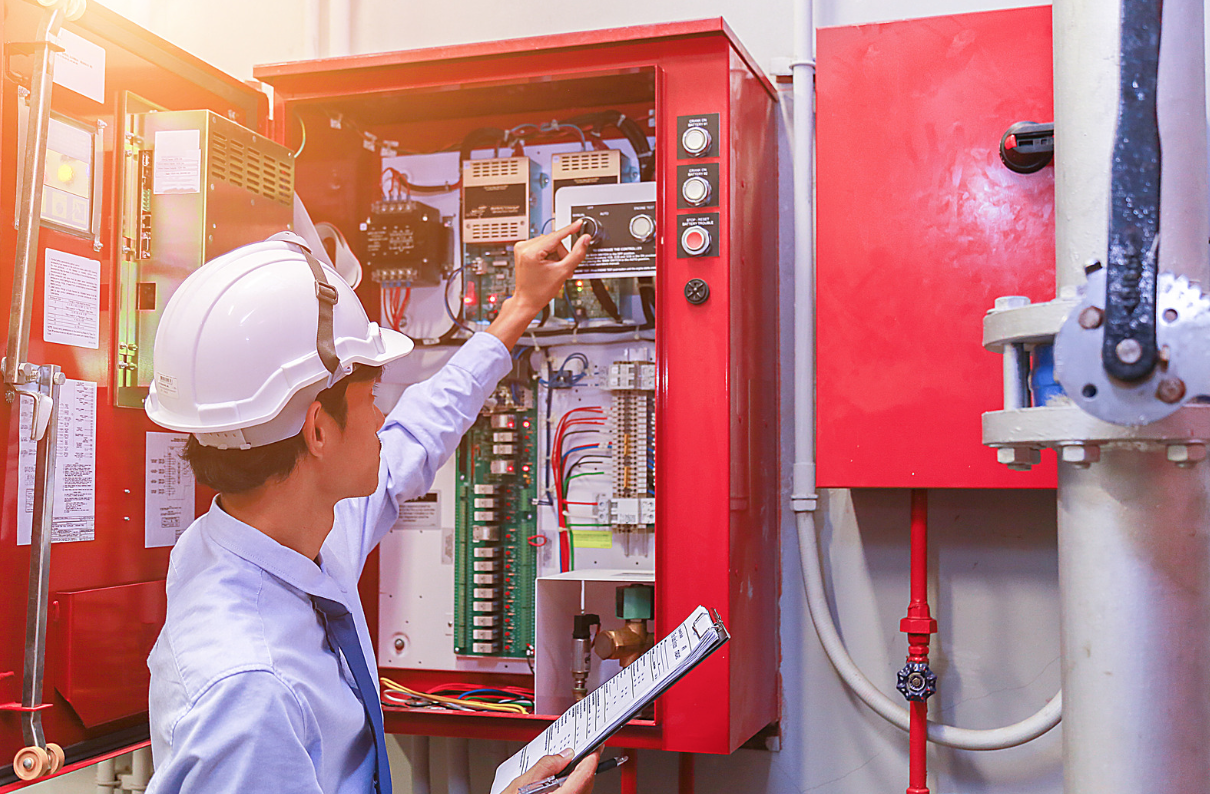
What is the Frequency of Testing My Fire Alarm System at Home?
For homeowners, in line with the British Standard BS 5839-1, it’s recommended to test fire alarms biannually. This ensures all components are in optimal condition, aligning with UK domestic fire alarm regulations.
Who Should Test the Fire Alarm System?
Basic weekly tests can be done by regular users. However, more comprehensive tests, be it monthly or annually, should be carried out by a trained individual, be it a designated safety officer or a certified fire safety professional.
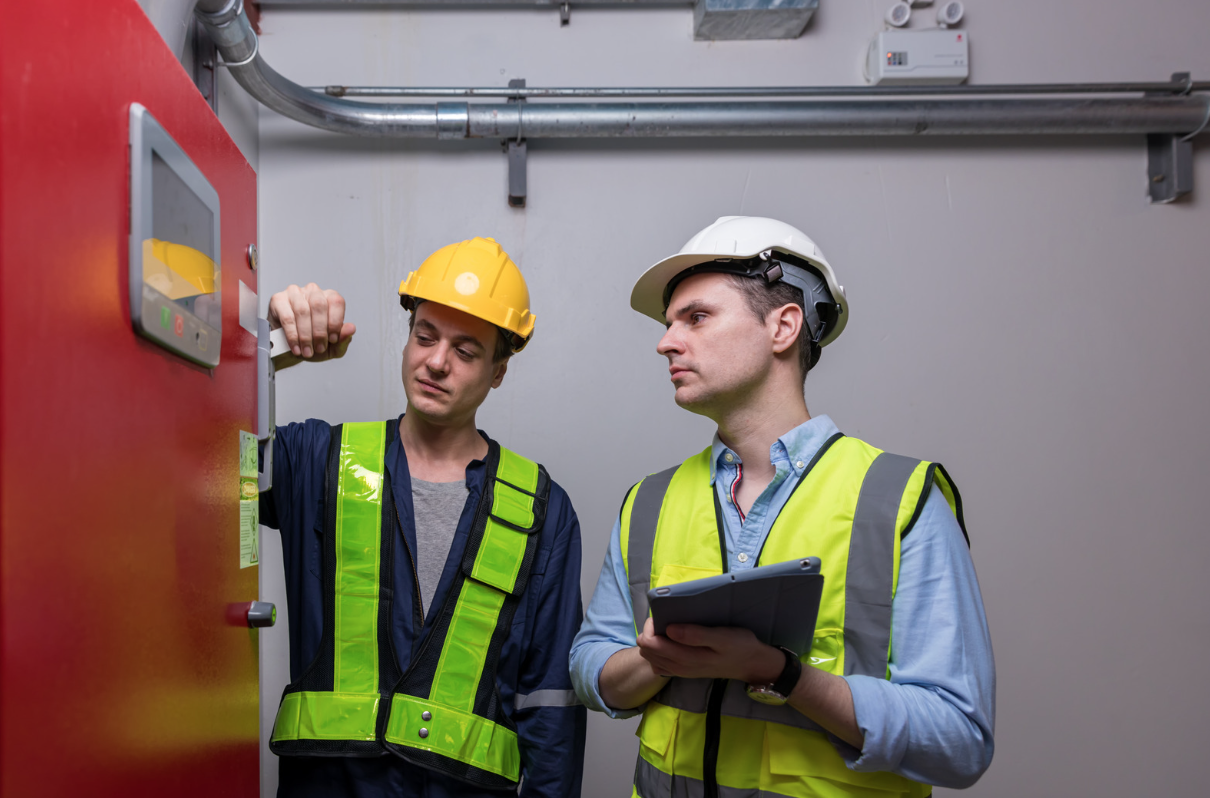
How Should the Testing of the Fire Alarm System Be Carried Out?
The testing process involves several steps. So if you’re carrying our a fire alarm test, you must do the following:
Inform all occupants about the upcoming test.
Initiate a manual test of the alarm.
Ensure the alarm signal reaches every part of the building.
Use the alarm control panel to verify the system’s accuracy.
If available, conduct automated tests to simulate fire scenarios.
After each test, document the findings and address any identified issues promptly.
How Should I Record the Fire Alarm Testing?
Effective recording involves:
Choosing a Documentation Method: Logs, digital spreadsheets, or specialised software are preferable.
Date and Time: Vital for tracking frequency.
Testing Details: Include specifics of the testing process.
Results: Document success rates and identified issues.
Maintenance Actions: Record any necessary maintenance tasks.
By keeping a consistent record, you can identify trends and make data-driven decisions about your system.
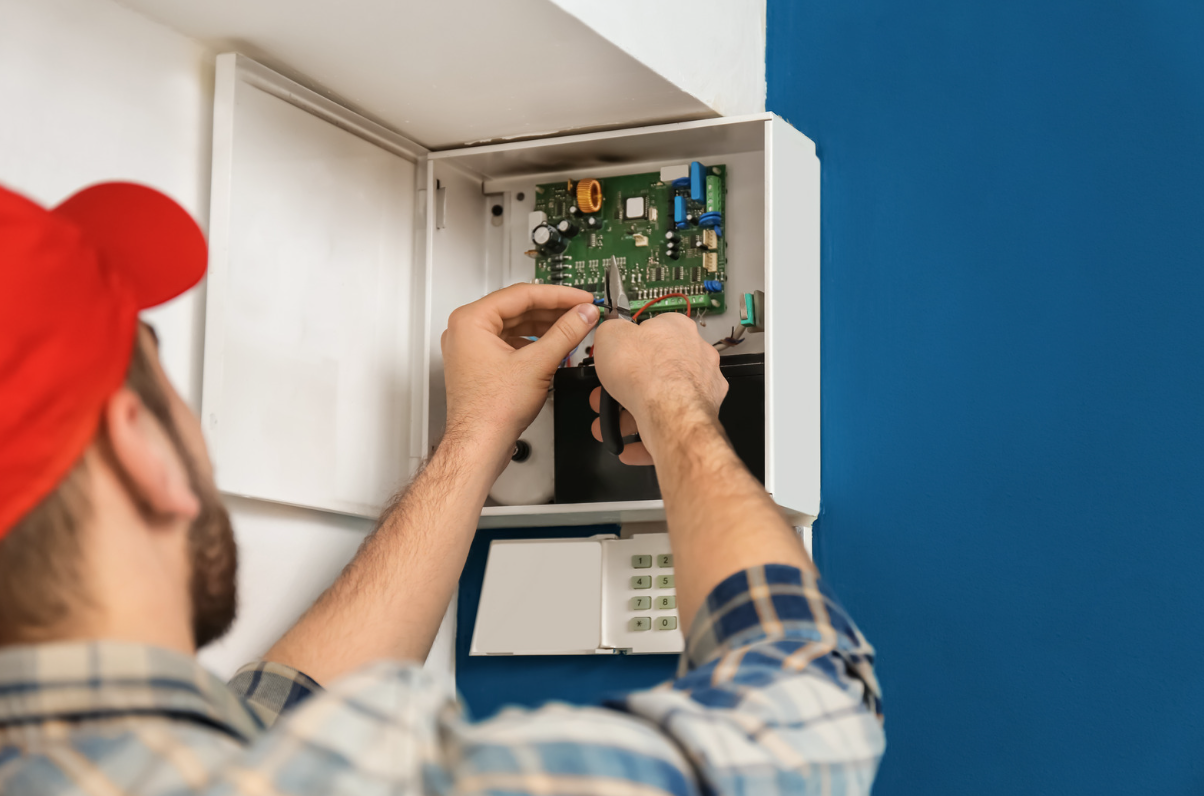
Do You Need a Fire Alarm System Fitted?
Are you in need of a fire alarm system installation that ensures optimal safety? Protecting your premises and the people within it is of paramount importance, and a well-fitted fire alarm system plays a crucial role in achieving this goal. With our advanced fire alarm solutions here at Clear Sound Fire and Security, you can benefit from cutting-edge technology designed to provide clear and audible alerts in the event of a fire emergency. Our expert team will assess your space to determine the optimal placement of alarms and detectors, guaranteeing comprehensive coverage. Don’t compromise on safety – let us provide you with a fire alarm system that offers peace of mind and reliable protection.
In conclusion, ensuring the regular testing of your fire alarm systems is vital for your property’s and its occupants’ safety. With Clear Sound Fire and Security, you can trust our expertise to provide cutting-edge fire alarm solutions that offer clear alerts during emergencies. Don’t compromise on safety—choose us for reliable fire alarm systems that provide peace of mind and effective protection.
You may also like: Why Do My Fire Alarms Keep Going Off?
Fire Alarm Testing FAQs
We’ve answered some of the most frequently asked questions about fire alarm testing below:
Is weekly fire alarm testing a legal requirement?
In the UK, it is a legal requirement for fire alarm testing to be carried out once a week on commercial properties.
Do landlords have to test fire alarms?
By law, landlords are required to have at least one fire detection alarm on every floor of their property. This could be a conventional fire alarm system or a smoke alarm. In addition, if a property contains a solid fuel appliance, they are required to have a carbon monoxide alarm fitted as well. These regulations are in place to ensure the safety of their tenants.
What is the weekly fire alarm test BS 5839?
The weekly fire alarm test, as per BS 5839, refers to the British Standard guidelines for designing, installing, commissioning and maintaining fire detection and fire alarm panel systems in buildings. Specifically, the standard recommends a weekly test to ensure the functionality and reliability of these systems.
During this weekly test, the main objective is to confirm that the system can be triggered and that it produces an audible and, where applicable, visible alarm signal. Typically, a different manual call point (often known as a “break glass” point) is activated each week to ensure that every call point in the building is tested over time. To avoid unnecessary concern or confusion, it’s essential to inform building occupants of the scheduled test.


